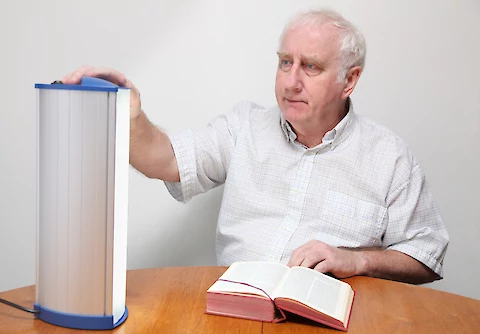
Seasonal Affective Disorder (SAD) is a prevalent issue, particularly among the senior population. It's a type of depression that usually happens when the seasons change. It causes many seniors to experience significant mood shifts as the year progresses. This Senior Helpers blog post is to provide an understanding of SAD. We will discuss how it affects seniors and explore various effective coping strategies.
Understanding Seasonal Affective Disorder
SAD is more than just "winter blues." It is a subtype of major depression that occurs seasonally. Symptoms of SAD can range from feeling down and having less energy to more severe symptoms like losing interest in activities once enjoyed and having difficulty concentrating. The impact can be even more significant for seniors, as they may already be dealing with other health issues or isolation.
What sets SAD apart from general depression is its seasonality. Individuals with SAD experience symptoms primarily during the fall and winter months. However, a less common form can occur in the spring and early summer.
Coping Strategies for SAD
There are a variety of options for treating SAD in seniors. Here are a few common strategies to help ease this seasonal depression:
1. Light Therapy
The most positive and common way to treat SAD is through light therapy. It involves exposure to a specially designed light box that mimics natural outdoor light. Its function is to influence brain chemicals linked to mood and sleep. For many seniors, light therapy can be an easy yet effective method to alleviate the symptoms of SAD.
2. Cognitive-Behavioral Therapy
Cognitive-behavioral therapy (CBT) is another tool in combating SAD. Through CBT, individuals learn to identify and change thought patterns that lead to feelings of sadness or hopelessness. This form of therapy equips seniors with coping mechanisms to manage their symptoms effectively. It also helps seniors call up these learned skills and prepare themselves for the coming season.
3. Medication
Medication is also an option. Certain antidepressants can be particularly helpful in treating SAD. It is important to consult with a healthcare provider for the best course of treatment. This is especially true for seniors who may be on other medications. These medications regulate the serotonin levels in your body, resulting in an improved mood.
4. Natural Options
Natural coping methods can also play an important role. Regular exercise, a healthy diet, and developing a good sleep pattern can all help to keep symptoms at bay. Staying involved with your social network, keeping up with hobbies and activities, and getting outside every day, no matter what the weather, can make all the difference.
The Importance of Seeking Professional Help
Despite the effectiveness of the aforementioned coping strategies, they may not be enough for some, especially those experiencing severe forms of SAD. It is essential that if you or a loved one is struggling, professional help is needed. Mental health professionals can provide a personalized treatment plan to manage SAD effectively.
Senior Helpers Can Provide Support for SAD
Senior Helpers offers quality, in-home senior care services designed to meet the individual needs of our senior community. If you live in the Adrian, Ann Arbor, Ypsilanti, or Jackson areas, contact us today at Senior Helpers Ann Arbor. We are here to provide support and personalized care options for seniors experiencing SAD.